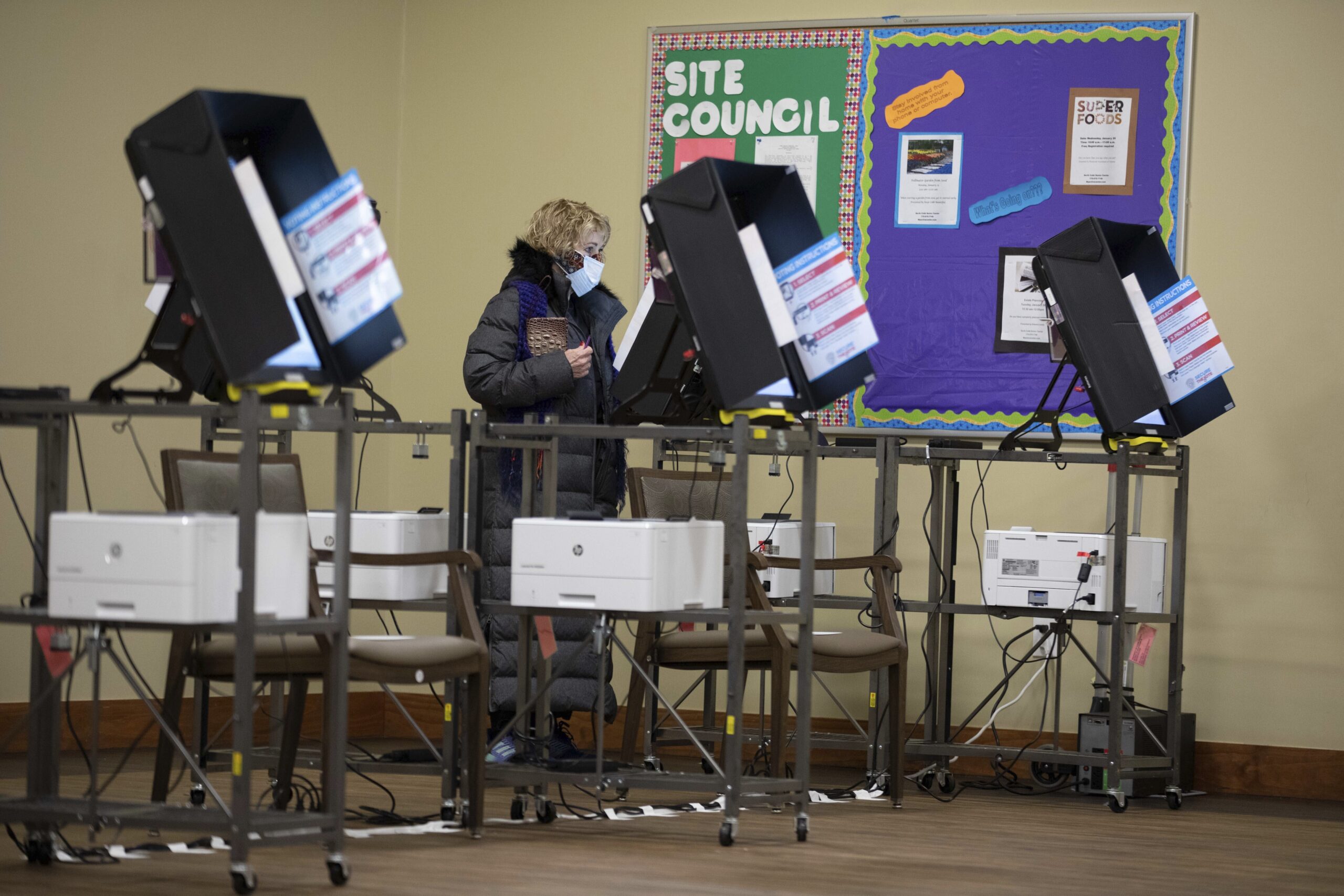Christopher Alston
,
Votebeat
| WABE
February 11th, 2021
This coverage is made possible through Votebeat, a nonpartisan reporting project covering local election integrity and voting access. The article is available for reprint under the terms of Votebeat’s republishing policy.
Georgia lawmakers are set to begin debating election security measures proposed following unfounded allegations of fraud in the 2020 election.
The Senate Ethics Committee currently has more than 20 voting-related bills under its consideration, and Thursday the first four were assigned to subcommittees for a first round of vetting early next week.
Two of the bills center on the most contentious voting policy debates between Georgia Republicans and Democrats, who have vowed to fight any perceived threats to voter access. One proposal would require voters to submit photo identification or a driver’s license number with an absentee ballot, although unlike another proposal it does not require voters to make a copy of their ID. The other would only allow Georgians to vote absentee with a valid excuse, eliminating the state’s current no-excuse absentee ballot system.
Republicans argue added security is necessary because of a lack of voter confidence in the system. This comes after many Republican elected officials supported unfounded claims of fraud after former President Donald Trump narrowly lost the state, despite repeated assurances from Georgia’s own Republican state election officials that the election was secure.
“I think bottom line is we did not see any widespread or systematic fraud … we didn’t see any foreign interference, or changing of votes,” reaffirmed Ryan Germany, a lawyer for the secretary of state’s office at a state election board meeting Wednesday.
Democratic officials have said such laws are unnecessary because there is no proof of fraud and they will discourage voters. Democrats have introduced their own legislation in the name of expanding voter access and encouraging high voter participation, including proposals for more ballot drop boxes, a permanent absentee voter list, and funding for more early voting in rural counties.
Slightly more than half of the bills in the Senate Ethics Committee were sponsored by Republicans, whose ideas center around placing additional restrictions on absentee voting and rolling back voting options that were expanded in response to the pandemic, like ballot drop boxes.
Another of the Senate bills scheduled for consideration next week would ban mobile polling locations, such as those used in Fulton County, except when original facilities are unusable. The other would establish the position of chief elections assistance officer in the secretary of state’s office to provide additional oversight to county elections departments, including the ability to suspend elections directors the state election board deems to be underperforming.
Other proposals that have already been introduced by Republicans in the Georgia Senate would eliminate ballot drop boxes, end the practice of automatically registering eligible voters when they apply for a driver’s license, prevent third-party groups from distributing absentee ballot applications and give poll-watchers greater access to vote counting.
On the House side, the Special Committee on Election Integrity has also been assigned more than two dozen pieces of legislation in the first few weeks of the session, and on Tuesday passed its first bill onto the full House for a vote.
The bill would move the deadline to submit an absentee ballot application from the Friday before an election, to 10 days before an election. At the committee hearing, county election officials testified that as it stands, the law “sets voters up for failure,” because if voters wait until the Friday before an election, it is highly unlikely they will be able to receive a ballot and return it in time.
Senate Republican leadership is expected to release a comprehensive voting package next week that is expected to consolidate many of the party’s priorities that have already been laid out in some of the above individual bills.









